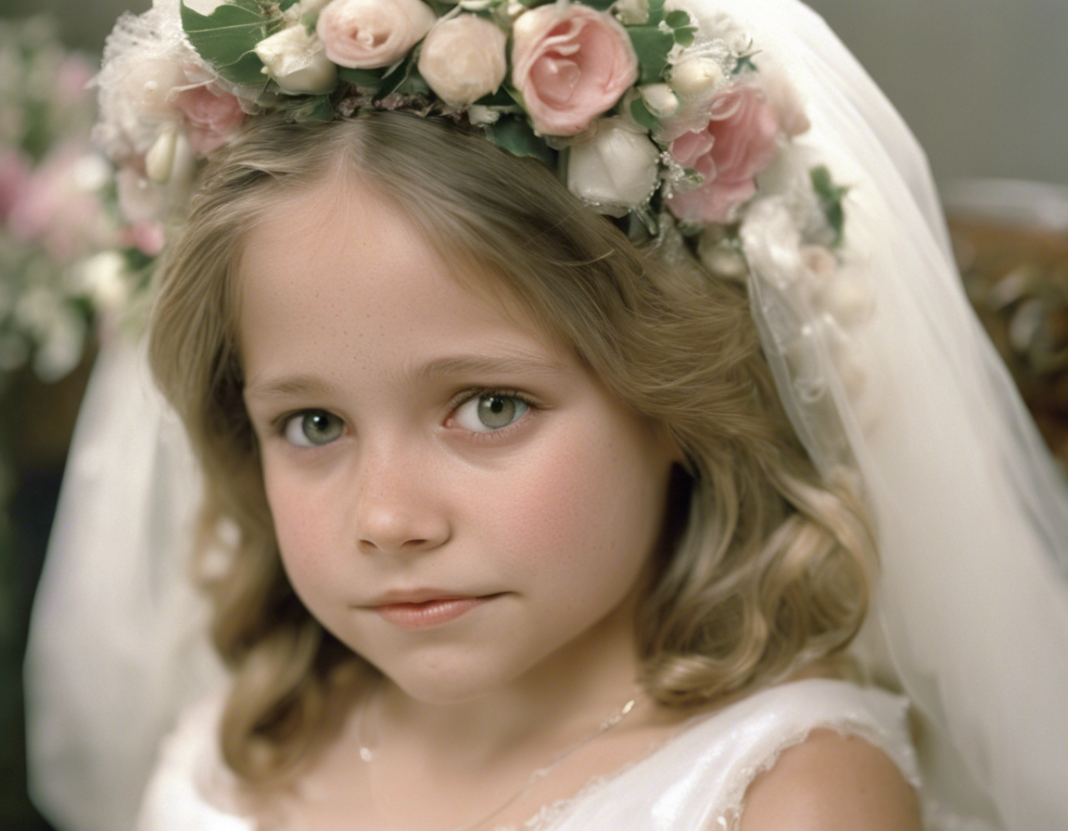Introduction
Child marriage is a practice that has existed for centuries across different cultures and societies around the world. This tradition, which involves marrying off young girls, often below the age of 18, has been a subject of controversy and debate due to its harmful effects on the physical, mental, and emotional well-being of the children involved. In this article, we will explore the tradition of childhood bride in various cultures, shedding light on the reasons behind it, the consequences it brings, and the efforts being made to eradicate this harmful practice.
Child Marriage in Different Cultures
-
India
In India, child marriage is a deep-rooted tradition that has been practiced for generations. Despite laws that prohibit marriage before the age of 18 for girls and 21 for boys, child marriages still occur in rural areas and among certain communities. Factors such as poverty, lack of education, and social norms contribute to the persistence of this practice. -
Africa
Child marriage is prevalent in many African countries, where girls are often married off at a young age for economic reasons or to cement alliances between families. In some communities, girls are seen as commodities to be traded for goods or as a way to alleviate financial burden on families. -
Middle East
In the Middle East, child marriage is also common in certain regions and among specific communities. Traditionally, girls are married off at a young age to ensure their chastity and obedience. In some cases, child marriage is used as a way to control female sexuality and maintain family honor. -
South America
In countries like Brazil and Mexico, child marriage is prevalent among indigenous communities and in rural areas. Poverty, lack of access to education, and traditional customs contribute to the perpetuation of this practice. Girls who are married off at a young age often face early pregnancies, limited opportunities for personal development, and increased risk of domestic violence.
Consequences of Child Marriage
-
Health Effects
Child brides are at a higher risk of experiencing complications during pregnancy and childbirth due to their young age and lack of physical maturity. They are also more likely to suffer from mental health issues such as depression and anxiety as a result of early marriage and forced adulthood. -
Education
Child marriage often results in girls dropping out of school to take on household responsibilities or care for children. This limits their opportunities for personal growth and economic independence, perpetuating the cycle of poverty and gender inequality. -
Violence and Abuse
Child brides are more vulnerable to domestic violence, sexual abuse, and exploitation by their spouses. They often lack the agency to protect themselves or seek help, leading to prolonged suffering and trauma.
Efforts to End Child Marriage
-
Legislation
Many countries have enacted laws to raise the minimum age of marriage and protect children from being married off at a young age. However, the enforcement of these laws is often weak due to deep-rooted cultural practices and lack of awareness. -
Education and Awareness
Non-profit organizations and grassroots movements are working to raise awareness about the harmful effects of child marriage and empower girls to make their own choices. By providing education, vocational training, and support services, these initiatives aim to break the cycle of poverty and empower girls to lead fulfilling lives. -
Community Engagement
Engaging with community leaders, religious authorities, and local stakeholders is crucial in addressing the root causes of child marriage and changing deep-seated attitudes towards gender roles and marriage. By involving the community in discussions on gender equality and human rights, progress can be made towards ending this harmful practice.
Frequently Asked Questions (FAQs)
-
What is the legal age of marriage in most countries?
The legal age of marriage varies from country to country but is typically set at 18 years for girls and 21 years for boys. However, many countries have exceptions that allow marriage at a younger age with parental consent or in special circumstances. -
What are the main reasons behind child marriage?
Child marriage is often driven by a combination of factors such as poverty, lack of education, gender inequality, and cultural traditions that prioritize girls’ roles as wives and mothers over their personal development and well-being. -
What are the health risks associated with child marriage?
Child brides are at a higher risk of experiencing complications during pregnancy and childbirth, including obstetric fistula, infant mortality, and maternal mortality. They are also more prone to mental health issues such as depression and anxiety. -
How can we end child marriage?
Ending child marriage requires a multi-faceted approach that includes enforcing laws to raise the minimum age of marriage, providing education and economic opportunities for girls, raising awareness about the harmful effects of child marriage, and engaging with communities to change attitudes towards gender roles and marriage. -
What are the long-term effects of child marriage on girls?
Child marriage can have long-lasting effects on girls, including limited educational and economic opportunities, increased risk of domestic violence and abuse, early pregnancies, and mental health issues. Breaking the cycle of poverty and gender inequality is essential to empower girls and protect their rights.
In conclusion, childhood bride is a harmful practice that deprives girls of their childhood, education, and future opportunities. By raising awareness, enacting and enforcing laws, and empowering girls to make their own choices, we can work towards ending child marriage and creating a world where every child can thrive and reach their full potential.


